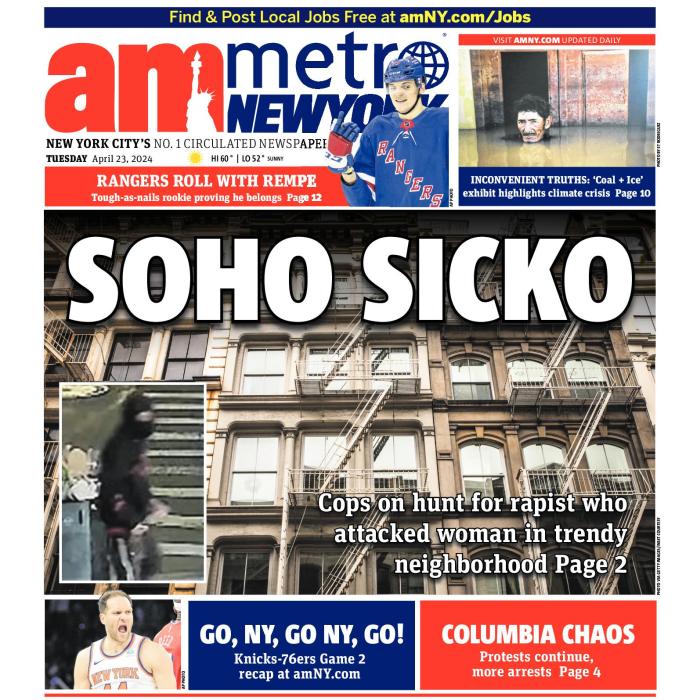Gov. Andrew Cuomo gave not one but six State of the State speeches this week, a series of travelling performances from New York City to Buffalo.
He announced big ideas, like free tuition for many public college students and a bold expansion at JFK Airport. But one policy change he didn’t mention: a proposal to decriminalize recreational marijuana, slipped onto page 191 of the formal 380-page State of the State document.
The change in policy could have wide implications around the state. But it’s part of a long history of marijuana policy in New York, which has only ever changed slowly and painstakingly.
Cuomo’s two-page proposal didn’t get into many details. But the “frame work” for the proposed legislation, says Alphonso David, the governor’s counsel, is a 2012 bill that failed in the State Senate.
That proposal would have taken away the criminal penalty for possession of small amounts of marijuana in public view. But “burning” or smoking in a public place would still have been a misdemeanor.
Those distinctions have a long history in the state, where the push and pull between looser and stricter marijuana regulations have often tracked public opinion on levels of policing and the relative strength of the criminal justice system.
Since 1977, personal possession of marijuana has been decriminalized in New York State. But that was the beginning of the huge loophole that advocates and legislators have spent decades arguing over and trying to address: marijuana found in public view or “burning.” In those cases, you’d be slapped with a misdemeanor arrest.
What is illegal in New York when it comes to marijuana?
What it means to burn marijuana was clear: smoking. The “public view” part was less so. That could mean walking around with a fairly big bag of marijuana in your hand. But, as it turned out, marijuana was also in “public view” after police officers asked you to empty your pockets, leading you to display a dime-bag.
This led to particular complaints from New Yorkers during the proactive policing days launched by William Bratton, especially at the height of stop-and-frisk policing in the 90s, when police officers posted in communities of color were directed to perform many stops. The loophole led to many arrests, for a drug that was supposedly decriminalized.
In 2011, then-police commissioner Ray Kelly issued a memo reminding officers of the law, noting that those compelled to show a dime-bag would only be hit with a violation.
Mayor Bill de Blasio ran a campaign based in large part on reforming some of the excesses of the stop-and-frisk era. In 2014, soon after Brooklyn district attorney Ken Thompson announced he would stop prosecuting most low-level marijuana cases, de Blasio and his police commissioner announced their own reform regarding marijuana: Possession of small amounts of marijuana would result in most cases in a criminal court summons, as for public urination. That “baby step” forward, as Christopher Alexander of the Drug Policy Alliance calls it, is less stringent than the arrest for a violation that would have happened under Mayor Michael Bloomberg and Ray Kelly. Marijuana arrests, which had already been dropping since stop-and-frisk fell out of favor, fell even further.
Yet it remains illegal to smoke marijuana in public. And state numbers show that the arrests that still do occur in NYC for low-level marijuana possession of this kind are overwhelmingly minorities.
You can’t have your pot and smoke it, too
Cuomo’s proposal, if it ends up hewing to the 2012 attempt, would essentially make the city’s marijuana rules state policy. Some state legislators have gone further with their own bills that edge progressively closer to full legalization. David, the governor’s counsel, said some aspects of those bills could be pulled into the governor’s, which would be introduced in the coming months.
Meanwhile, Cuomo’s efforts on behalf of medical marijuana have been successful. Medical use is now legal and has been extended in various ways.
The path through the state legislature might be less certain now than previous years, with less of a Democratic and moderate Republican presence. But David contends that we’ve seen “a radical change in how the NYPD has been treating this issue for at least a year and a half.” The fact that NYC hasn’t shown any ill effects from the changed policy means the city could be “a model” for the state, he says.
It’s certainly good politics, given shifting opinions on marijuana here and elsewhere, and the somewhat bipartisan pressure to reform over-prosecution in the criminal justice system.
If those opinions hold, even this small step toward more liberal marijuana policy could be used as a wedge against dissenting Republicans. “It’s important that we move it forward,” said State Sen. Daniel Squadron of the proposal. He has introduced his own bills on the issue since 2012. His characterization of the Republican response? “Stonewalling.”

















